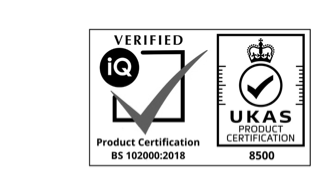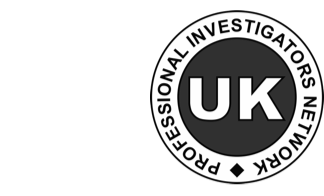If you’ve ever needed to make an insurance claim, chances are you’ve heard the term “loss adjuster”. In theory, the insurance claims process should be straightforward. A policyholder makes a claim following an incident that results in loss, and the insurance company pays out. However, as with most things, it’s rarely so straightforward, and that’s especially true when dealing with high-value claims.
When there’s a lot of money on the line, it’s important that due process is followed to ensure that the insurance company pays out — and the policyholder receives — the correct amount of money.This is where a loss adjuster comes in. But what is loss adjustment, and what does a loss adjuster do? Let’s run through everything you need to know about the role of an insurance loss adjuster and what’s involved when you make a claim.
What is a Loss Adjuster?
If you’ve ever had to make a high-value claim on your insurance, then you will likely have come into contact with a loss adjuster, as they’re appointed by insurance companies to investigate the details of a claim. They’re not needed for all types of claims, however — they’re usually only required once the claim exceeds a certain value.
Their goal is to determine the facts of the incident. This, in turn, helps the insurance company determine the validity of the claim and, if so, to calculate the value of the pay-out. A good independent loss adjuster will work methodically and then present a written loss adjustment report to the insurance company.
Loss Assessors vs Loss Adjusters: What’s the Difference?
Some people throw out the terms ‘loss assessor’ and ‘loss adjuster’ interchangeably, but there are big differences between the two. A loss adjuster is a specialist appointed by the insurance company, whereas a loss assessor is a specialist hired by the person or group making the insurance claim.
That’s a significant difference because they essentially represent different parties. Groups who are making high-value claims will typically hire a loss assessor to put together their own report before presenting it to the insurance company. They can handle many other elements of the insurance claim process, too. For one thing, they know how to negotiate — if an insurance company appears to be underestimating the value of the claim, then a loss assessor can go to bat for the claimant, drawing upon their extensive knowledge of the insurance industry to ensure the true value of the claim is paid.
What do Loss Assessors do?
Loss assessors work on behalf of the claimant to ensure that they receive the full value of a claim. There are many reasons why a person might need to make a claim — their home could be damaged by a fire or flood, for instance, or they may be the victim of a burglary. A loss assessor, paid for by the claimant, will visit the site of the incident and conduct their own investigation, which they will then compile into a report to ensure that the insurance company pays the maximum value.
A loss assessor can handle virtually every aspect of the insurance claims process on behalf of the claimant. They can complete the paperwork and other essential actions and will also meet with the insurance company — or the loss adjuster working for the insurance company — to negotiate on your behalf.
The main reason individuals and companies hire loss assessors is that they work entirely with claimants and never with insurance companies. As such, when you hire a loss assessor, you’re essentially hiring someone with an in-depth understanding of the insurance industry to support your claim.
Can a Loss Adjuster refuse a claim?
Insurance companies can’t — and shouldn’t — just pay out a claim without making sure that the claim is merited. This is why they hire a loss adjuster, which is a professional that carries out an insurance investigation to ensure that, first and foremost, the claim is a valid one and its value is accurately calculated.
They work on behalf of insurance companies, but that doesn’t mean that they’re employees of insurance companies or that they’re solely interested in reducing the value of the claim. They must also still follow the codes of conduct as set out by the industry. In some cases, loss adjusters will increase the size of the claim. Alternatively, they may decide that the claim should be refused.
Ultimately, loss adjustment in insurance is an essential tool that keeps fraudulent claims out of the industry and ensures that the correct value is paid out.
Are loss adjusters independent?
One may think that a loss adjuster is motivated to reduce the value of a claim as they have been appointed by the insurer, this is not the case. There are strict guidelines that must be followed, including the codes of conduct outlined by the Chartered Institute of Loss Adjusters.
The work conducted by a loss adjuster is to provide the necessary evidence required to make a settlement that accurately represents the circumstances and allows both the insurer and the claimant to be accurately compensated for the loss.
What will a Loss Adjuster ask me?
Loss adjusters visit sites to assess the extent of the damage made in the claim. The most common type of insurance claim that loss adjusters handle is claims against the home. The first thing that a home insurance loss adjuster will do is determine whether the claim is valid under the terms of the insurance policy. For instance, if the damage to the property is due to flood damage, but the policy does not cover flood damage, then the visit may end there.
If the damage is covered under the terms of the policy, then the loss adjuster will determine the extent of the damage and the value of the loss. They’ll take photographs and create other documents to submit in their loss adjuster report to the insurance company, which in turn will use the documents to calculate the pay-out.
How can I help the Loss Adjuster speed up the process?
You can assist the loss adjuster by having as much documentation as possible ready for inspection. For instance, any paperwork you have for emergency repairs or receipts for the damaged products that you include in the insurance claim. Proof of ownership can also be useful. In general, the best approach is to avoid throwing anything away before the loss adjuster has visited the property and completed their work.
What is the role of a private investigator loss adjuster?
Where the basis for an insurance appointed loss adjuster is to liaise with claimants and establish the validity of a claim, a private investigator will conduct covert surveillance to establish whether the claimants are being honest. This usually tends to occur when there are road traffic accidents and personal injury claims. These types of claim tend to be more subjective and often a visit to the site or review of documentation won’t be sufficient to verify the extent of the injury. Private investigators can work for both the insurer and the claimant, in many circumstances the ‘at fault’ party will hire an investigator to encourage the insurer to reassess the claim.
Reveal PI Loss Adjustment
If you’re looking for loss adjusters in the UK, be sure to get in touch with the private detectives here at Reveal PI. We are members of the Chartered Institute of Loss Adjusters and have extensive experience in assisting insurance companies to manage questionable insurance claims. We have access to a wide variety of advanced tools and working methods that will determine the validity of the claim and the extent of the damage.


 Surveillance
Surveillance Matrimonial Investigations
Matrimonial Investigations Bug Sweeping
Bug Sweeping GPS Vehicle Tracking
GPS Vehicle Tracking Lie Detector Test
Lie Detector Test Person Tracing
Person Tracing Employee Investigations
Employee Investigations Asset Tracing
Asset Tracing Fraud Investigations
Fraud Investigations Injury & Insurance Investigations
Injury & Insurance Investigations







